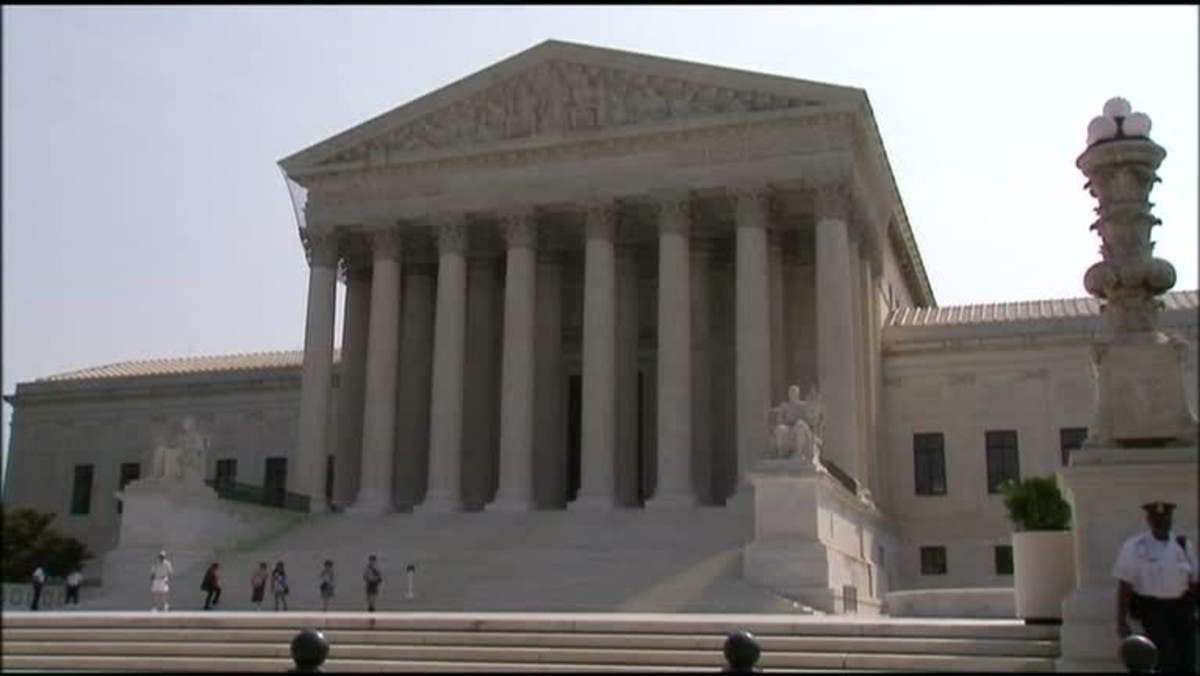Alabama executed an inmate by lethal injection for a 1996 murder on Thursday after a divided US Supreme Court sided with the state and rejected defense claims the man had an intellectual disability that cost him a chance to choose a less “torturous,” yet untried, execution method.
Matthew Reeves, 43, was put to death at Holman Prison after the court lifted a lower court order that had prevented corrections workers from executing the prisoner. He was pronounced dead at 9:24 p.m. CST, state Attorney General Steve Marshall said in a statement.
For the latest headlines, follow our Google News channel online or via the app.
Reeves was convicted of killing Willie Johnson Jr., a driver who gave him a ride in 1996. Evidence showed Reeves went to a party afterward and celebrated the killing.
The inmate had no last words. After craning his neck to look around a few times, Reeves grimaced and looked at his left arm toward an intravenous line. With his eyes closed and mouth slightly agape, Reeves’ abdomen moved repeatedly before he grew still.
Gov. Kay Ivey, in a statement, said Johnson was “a good Samaritan lending a helping hand” who was brutally murdered. Reeves’ death sentence “is fair, and tonight, justice was rightfully served,” she added.
Prison officials said some of Johnson’s family witnessed the execution. In a written statement, they said: “After 26 years justice (has) finally been served. Our family can now have some closure.”
Reeves was convicted of capital murder for the slaying of Johnson, who died from a shotgun blast to the neck during a robbery in Selma on November 27, 1996. He was killed after picking up Reeves and others on the side of a rural highway.
After the dying man was robbed of $360, Reeves, then 18, went to a party where he danced and mimicked Johnson’s death convulsions, authorities said. A witness said Reeves’ hands were still stained with blood at the celebration, a court ruling said.
While courts have upheld Reeves’ conviction, the last-minute fight by his lawyers seeking to stop the execution involved his intellect, his rights under federal disability law and how the state planned to kill him.
The Supreme Court on Thursday evening tossed out a decision by the 11th US Circuit Court of Appeals, which had ruled Wednesday that a district judge didn’t abuse his discretion in ruling that the state couldn’t execute Reeves by any method other than nitrogen hypoxia, which has never been used.
Reeves’ attorneys criticized the Supreme Court’s failure to explain its decision to let the execution proceed. “The immense authority of the Supreme Court should be used to protect its citizens, not to strip them of their rights without explanation,” they said.
In 2018, Alabama death row inmates had a chance to sign a form choosing either lethal injection or nitrogen hypoxia as an execution method after legislators approved the use of nitrogen. But Reeves was among the inmates who didn’t fill out the form stating a preference.
Suing under the American With Disabilities Act, Reeves claimed he had intellectual disabilities that prevented him from understanding the form offering him the chance to choose nitrogen hypoxia — a method never used in the US — over lethal injection, which the inmate’s lawyers called “torturous.”
Reeves also claimed the state failed to help him understand the form. But the state argued he wasn’t so disabled that he couldn’t understand the choice.
It was a divided court that let the execution proceed. Justice Amy Coney Barrett said she would deny the state’s request, while Justice Stephen Breyer, who just announced his retirement, and Justice Sonia Sotomayor joined with Justice Elena Kagan in a dissent that said the execution shouldn’t occur.
The state had previously asked the 11th US Circuit Court of Appeals to lift a lower court injunction and allow the execution, but the panel on Wednesday had refused. Alabama then appealed, sending the case to the nation’s highest court.
Alabama switched from the electric chair to lethal injection after 2002, and in 2018 legislators approved the use of another method, nitrogen hypoxia, amid defense challenges to injections and shortages of chemicals needed for the procedure. The new method would cause death by replacing oxygen that the inmate breathes with nitrogen.
A poor reader and intellectually disabled, Reeves wasn’t capable of making such a decision without assistance that should have been provided under the American With Disabilities Act, his lawyers argued. A prison worker who gave Reeves a form didn’t offer aid to help him understand, they said.
With Reeves contending he would have chosen nitrogen hypoxia over a “torturous” lethal injection had he comprehended the form, the defense filed suit asking a court to halt the lethal injection. US District Judge R. Austin Huffaker, Jr. blocked execution plans, ruling that Reeves had a good chance of winning the claim under the disabilities law.
A defense expert concluded Reeves had a first grade reading level and the language competency of someone as young as 4, but the state disagreed that Reeves had a disability that would prevent him from understanding his options.
An Alabama inmate who was put to death by lethal injection last year, Willie B. Smith, unsuccessfully raised claims about being intellectually unable to make the choice for nitrogen hypoxia.
Stavros Lambrinidis, the European Union ambassador to the US, had sent a letter both condemning Johnson’s killing and asking the governor Ivey to block the execution.
Read more:
Israeli police demolish contested Palestinian home in Sheikh Jarrah
Japan executes three death row inmates by hanging
Iran executes Kurdish prisoner: Rights group

 World3 years ago
World3 years ago
 World3 years ago
World3 years ago
 Business12 months ago
Business12 months ago
 Entertainment7 years ago
Entertainment7 years ago
 World7 years ago
World7 years ago
 Entertainment7 years ago
Entertainment7 years ago






